Mi3's top tech stories of 2022: CX plans and pain, last click attribution returns, regulators v Google on secret fleecing; Privacy overhaul taking shape, physical retail rise crimps ecom and Silicon Valley’s marketing alt peaks – growth hacking

From Mecca to General Pants and Telstra, the rise of customer experience management continues just as ecom pure plays are facing a new data point – physical retail is fighting back with faster growth this year. Last click attribution is also making a comeback for some while an overhaul of the privacy act is showing signals of what new consumer consent and disclosure could to do to industry. Here’s Mi3’s top tech stories for the year featuring Coles' Sam McLeod, Mecca's Sam Bain, Steggles and Lilydale's Yash Gandhi, The Iconic's ex-CMO Alexander Meyer, Salesforce' Colin Fleming and Jo Gaines, LinkedIn's Ryan Roslansky and Jim Habig, DocuSign's Andrea Dixon, Pet Circle's Jon Wild, IAG's Willem Paling, Kaimera's Nick Behr and Trent McMillan, Rokt's Bruce Buchanan, Mosaic Brands and Alquemie's Richard Facioni, CottonOn's Michaela Michaut, NSW University's Dr Katharine Kemp, Havas' Kevin Fernandes, Avenue C's Daniel Cutrone, Nunn Media's Pete Wilson, OMG's John Lynch, Match & Wood's Michael Wretham and Jonathan James on the peak of Silicon Valley's anti-marketing movement - growth hacking
25.
We’ve always over invested in experience for the customer, we just needed to do it in this channel. What we'd like to do is bring that intense service model and the ability to really support customers into the digital world
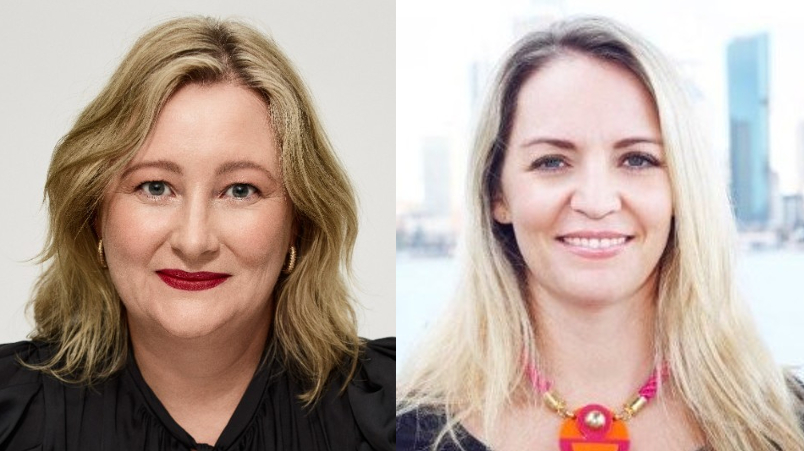
Mecca's Chief digital Offcier Sam Bain (L) and Jo Gaines, VP for Retail and Consumer Goods at Salesforce: "We talk quite a bit about humanising digital," says Bain.
Renowned for its in-store customer experience and a loyalty program that’s not led by discounting, the Australian beauty retailer Mecca is headlong into a digital transformation program designed to match its reputation on the high street. The retailer has long avoided advertising – it has dabbled in it more recently – but Mecca’s Chief Digital Officer Sam Bain co-led the retailer’s executive leadership team, including Mecca’s CFO, on an “eye-opening” scouting trip to San Francisco in September to the annual Dreamforce extravaganza put on by Salesforce. Here’s the prognosis as Mecca moves to a new mission blending content, commerce and customer experience online.
24.
Investment in brand today really is an investment in sales tomorrow. But, of course, we had to prove this. If we executed this campaign well, we knew growth would take care of itself.
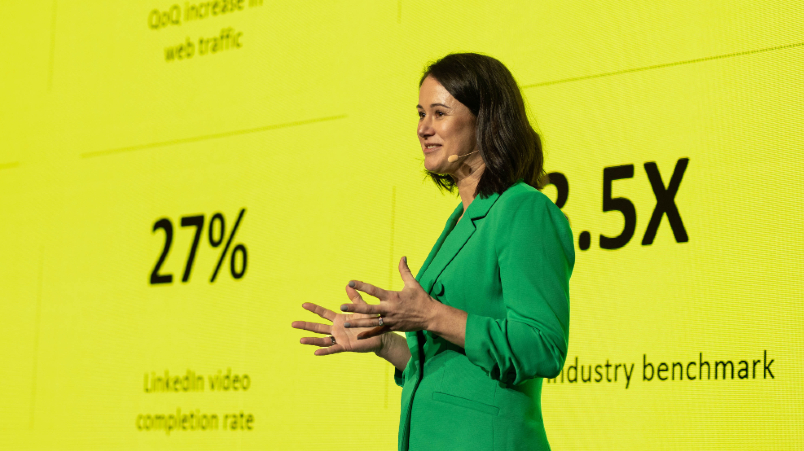
Andrea Dixon, DocuSign's Senior Marketing Director APJ: "If we executed this campaign well, we knew growth would take care of itself. Investment in brand today is an investment in sales tomorrow. But, of course, we had prove this."
When radio and TV identity-turned influencer marketing supremo at Tribe, Jules Lund, printed his new contract from Nine Network to a Qantas Club printer, a spectacular fail saw it broadcast print to every Qantas lounge in the country, complete with Lund’s financials. Fast forward a few years and the story of Lund’s printing prowess ended up helping DocuSign grow 40 per cent YOY in Australia as it took its first risky leap away from lower funnel demand generation advertising to a brand building campaign in what APAC marketing boss Andrea Dixon called “an investment in sales tomorrow”. With an initial budget of just 100k, the Australian project is now going global - Singapore and Japan are the next markets to follow the Australian hit. Here's how Dixon and Hardhat’s Dan Monheit cracked the code for “Next time DocuSign” in their keynote to the Mi3-LinkedIn B2B Next summit last week.
23.
Scott Galloway's take on the Web3 evangelists was severe: "As a crypto bro, I want to tell everyone we are taking back control from the evil wealth-driven ultra-rich, so that I too may become ultra-rich."
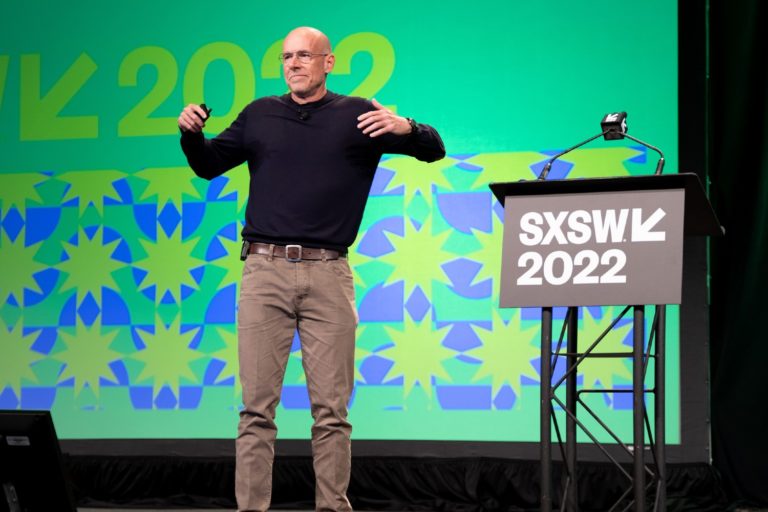
Back after a Covid-induced three-year absence, this year’s SXSW was dominated by evangelists who would have you believe Web 3.0 is righting the wrongs of Web 2.0, NFTs are taking over nearly everything, and that we’ll all be playing and paying in the metaverse in no time. But there were also plenty of dissonant voices adding their own spin on the spin. Nevertheless, Wavemaker Australia & NZ Chief Growth & Product Officer, James Hier – back from a week-long SXSW immersion – argues there is plenty to learn and adopt from the Austin, Texas tech and culture fest. Just don’t rush to start minting your own NFTs
22.
All attribution models are horribly flawed. None of them really tell you the true incremental story of what's really happening. Last click is the simplest of all the bad options. It's simple, it's easy to bend and shape so you can add modifiers and get it to behave more like a true full mixed funnel.
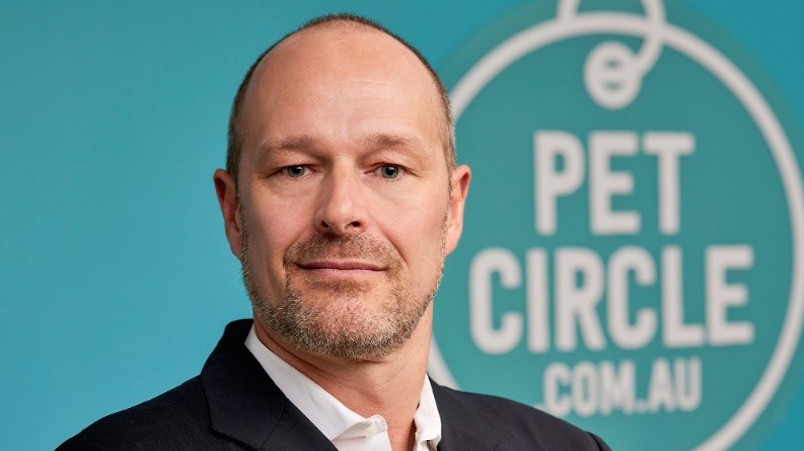
Pet Circle CMO Jon Wild: "All attribution models are horribly flawed. Last click is the simplest of all the bad options."
The CMO of private equity-backed online pureplay, Pet Circle, with a customer base approaching one million and revenues in the "hundreds of millions", has warned performance marketing and last click attribution is set to return with vengeance – along with rocketing performance media costs – despite the industry's rhetorical allegiance to investing in brand building during downturns. But contrasting Jon Wild's predictions and perhaps ironically, Bupa's Head of Performance, Clea Baker, says the insurer has wrung out the last drops of performance activity and brand investment is on the rise, despite the economic headwinds. It's a tale of marketing's duelling agendas but in the end, both execs align: they're trialling new measurement and attribution models and beseech their marketing peers to do more "switch out" testing to prove marketing's contribution to business. But it takes courage.
21.
Google ran secret programs that misled advertisers and publishers about how much digital ads cost, rigged auctions, and quashed competition by preferencing its own tools
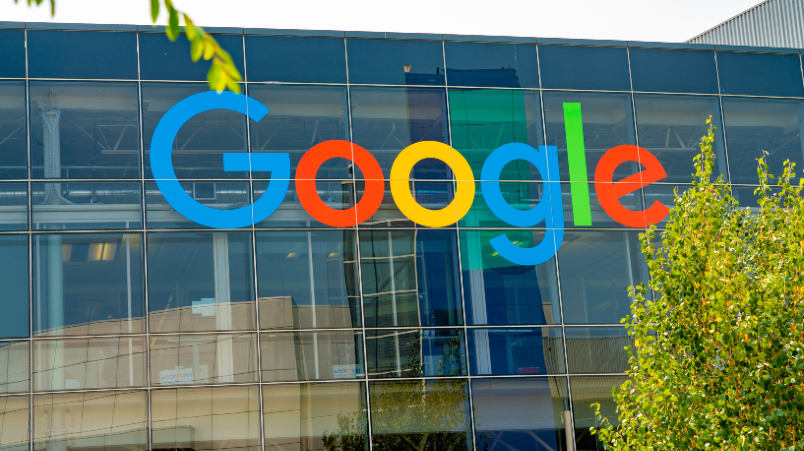
Google’s exchange processes about 11 billion online ad spaces each day. US states say it has rigged the market, charging advertisers more, paying publishers less and pocketing the difference.
Google created programs to make advertisers pay more for ads while paying publishers less by deliberately adjusting ad prices over a decade, a major US lawsuit alleges. Here's how US states claim the monopoly fleeced brands and publishers around the world.
20.
GA4 is the natural evolution of tracking. Big advertisers need this type of solution and if Google doesn’t provide it, rest assured their competitors will soon enough.

“We are trying to design for this feature to be workable and usable globally, and we hope that regulators agree," Vinay Goel, Google's Privacy Sandbox Product Director, says.
This is not a drill: Your current version of Google Analytics is about to stop working; kiss goodbye to year-on-year data
In July 2023 Google is sunsetting its current version of Google Analytics. GA4 is replacing Universal and none of your old/current data is coming across (though the lucky people on GA360 have until Oct 1st 2023). Over a year away, yes. But if you want historical and year-on-year data you need to implement GA4 immediately, and even if you do so tomorrow, you will only have 15 months' worth of data in GA4. Indago Digital's Gary Nissim breaks down what you need to know – and do – now.
19.
We’re pulling back, though not yet completely pulling out; it does still play a role for those type of clients for tactical re-engagement. But the industry has been too heavily reliant on retargeting,
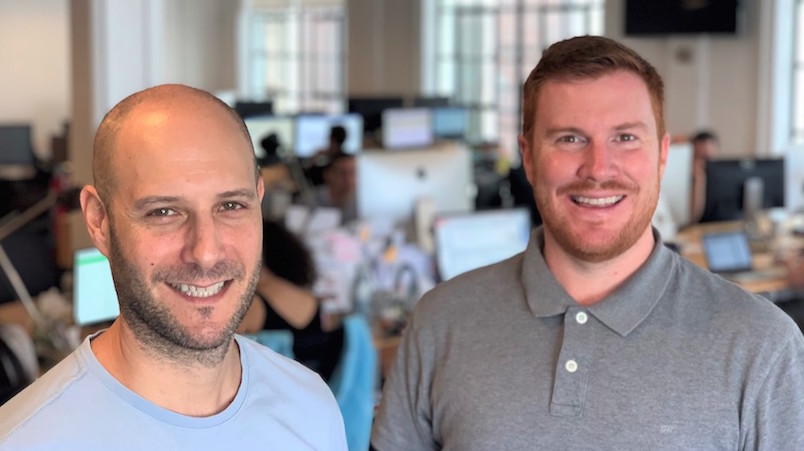
Kaimera founders Nick Behr and Trent McMillan (right): retargeting has been overhyped and overweight versus the results it actually delivers.
Kaimera is pulling ad dollars out of retargeting and broader programmatic digital display because it is failing to move the needle for advertisers. Co-founder and Chief Digital Officer Trent McMillan said the industry has been oversold on the gains and remains wedded to the wrong metrics. The firm is pushing harder into first party data and contextual approaches – and working out how to optimise towards attention.
18.
The economics of airlines suck and you couldn't do much on the cost side, so I was trying to sell 50 products to customers. Most people hate getting 50 products. What we worked out is if you get the right three products in front of each customer, you can double the economics of the airline.
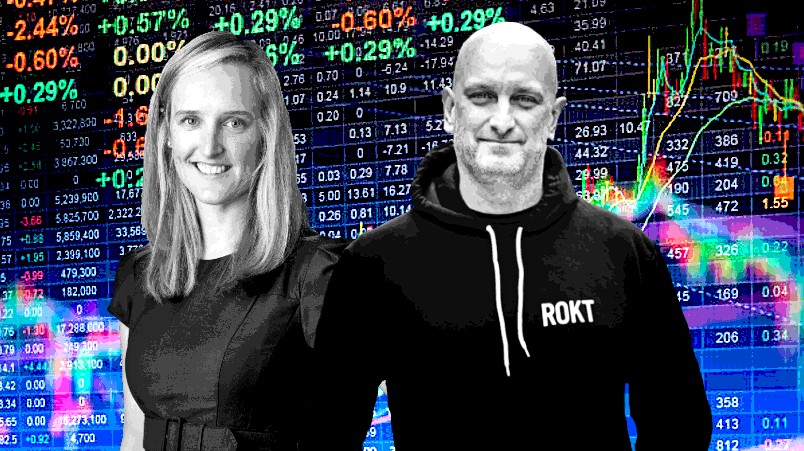
Sibling wisdom: Aimee Buchanan (L) and Bruce Buchanan (R): Strong brands' cost of customer acquisition "is so much less" in lower funnel channels, says Rokt's Bruce Buchanan.
Big Brother: Why ex-Jetstar boss Bruce Buchanan’s $2.9 billion ‘lower funnel’ start-up Rokt says brand investment is all powerful; tech, automation model the blueprint for Aimee Buchanan at GroupM
Sibling rivalry? Maybe a little. Bruce Buchanan jetted in from his base in New York recently as his 10-year-old ecommerce martech-adtech start-up, Rokt, is gunning for an IPO later next year at a current valuation of $2.9bn. Fresh from its latest deal with Uber, Rokt is squarely aimed at the pointiest end of performance marketing – the final steps in 2.5 billion ecommerce transactions this year – but he sees first hand the indisputable evidence of how strong brand investment sways consumer decisions at the point of purchase. Aimee Buchanan, meanwhile, says the tech and automation her brother has baked into Rokt is the future of a big media agency groups like GroupM grappling with relentless media channel complexity.
17.
SurfStitch, which is a pure-play online business, is probably flat-ish to 2019 maybe slightly down – which is consistent with other online retailers – and well down on last year. So ... you've definitely seen a shift from online from a year ago back to bricks and mortar.
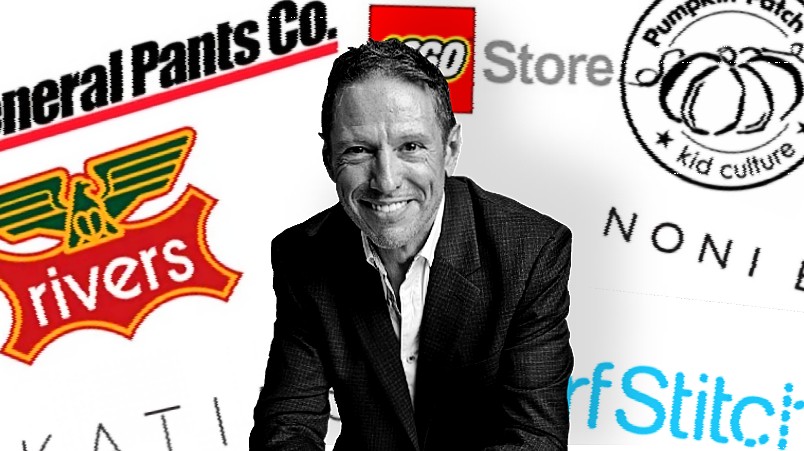
Chairman Facioni: "What we're seeing is performance marketing is becoming less effective. We do need to invest above the line in brand marketing…our overall budget doesn’t change, but the mix is shifting structurally.”
‘Definite pullback’: Online retailers squeezed as Covid bubble pops, performance costs ‘through roof’, shoppers return to stores; Alquemie-Mosaic chair plans physical stores for Surf Stitch, tech stack overhaul to cross-sell General Pants, Lego, Noni B
16.
When I left Australia, I had high hopes that we were leading the way. But with the benefit of hindsight, I think what we embraced was digital advertising over digital experience. Coming back from the UK, it’s starkly different that digital and data is still very siloed in team setups here.

Teresa Sperti, Samantha McLeod, Willem Paling: Australia facing a data and digital skills crunch – and it won't fix itself.
Australia's marketers flatlining on data and digital capability and losing CX remit: Coles Sam McLeod, ex-Woolies X exec Willem Paling on why and what next
Skills and capabilities across digital marketing, CX, data and analytics have flatlined in Australia over the last three years according to a study of more than 200 marketers. If the data is right, brand owners are a touch delusional about the skills they have versus what they need, while fully half the market has either been stripped of CX responsibility, or never had it to start with. Fresh from a decade in the UK, Coles GM of Brand, Digital and Design Sam McLeod thinks Australia is way behind the data-to-insight curve. Willem Paling has just left Woolies X and Cartology and says marketing must present itself as greater than the promotional function if it is to regain the CX remit. Teresa Sperti, whose firm Arktic Fox is behind the Marketing State of Play study, thinks ANZ’s marketing team and Kate Young have set the standard when it comes to equipping teams with the skills now sorely required. But there’s a big chunk of the market that still needs a plan.
15.
These are some of the learnings we’ve had from our first adventures. Having multiple data providers gives you contingency. We’ve got contingency in that system so if you add in a partnership or end a partnership, there’s contingency there.
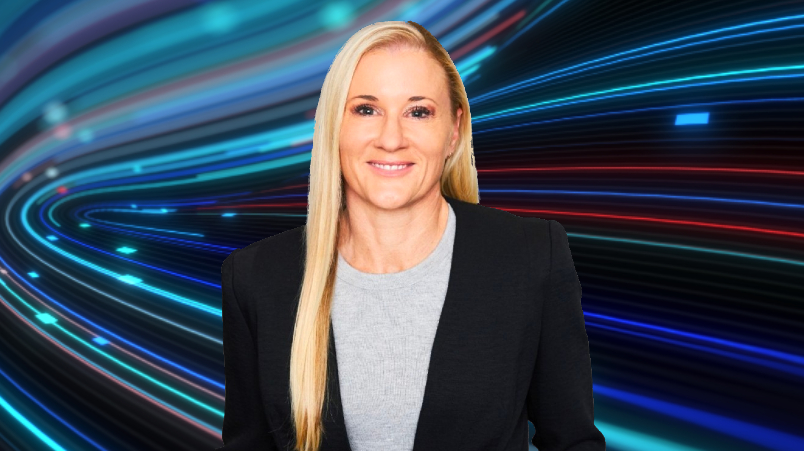
"Nielsen has been delivering digital audience measurement to this market since 1999... It was there before any industry bodies for digital came along," Nielsen Pacific MD, Monique Perry, says.
After a fraught time recovering and rebuilding from the loss of a crucial global data verification alliance with Facebook, Nielsen is launching a new online advertising measurement service here that is no longer reliant on one provider – and will ultimately match and measure ad exposure to sales impact. Nielsen Identity System, which starts in early April and will underpin Nielsen's plans to create a rival audience measurement service to the IAB-sanctioned Ipsos contract, takes local data from Unpacked by Flybuys, The Trade Desk, Equifax and others. It captures de-duplicated demographic audience exposure for online ad campaigns across Google, Facebook and the open web. Agencies and advertisers have been patient, Pacific MD Monique Perry says, and their patience has paid off.
14.
Our strategic partnership with Sitecore means we are even better positioned to help our clients design, deliver and optimise digital experiences

Bigger deal: Accenture's Bob Markham (left) & Sitecore's Steve Tzikakis.
Adobe sweats as Accenture strengthens ties with Sitecore
Accenture has broadened its deal with digital experience tech provider Sitecore, a move that may worry rival and fellow Accenture stack provider Adobe.
13.
Each of the brands have their own customers. But Perks means an apparel brand customer is also incentivised to buy stationary from Typo, so it encourages cross-brand shopping.
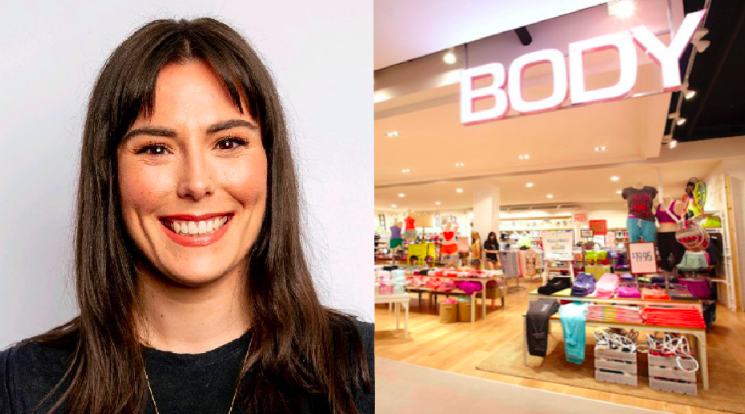
Michaela Michaut joins the global group from Geelong as it plots post-Covid path of physical and digital transformation.
Cotton On Group, the global fashion juggernaut operating out of Geelong, has overhauled its e-commerce operation and hired Michaela Michaut from Adore Beauty to spearhead customer acquisition. The firm is also grappling with how best to harness its 1,300 physical stores as international economies emerge from restrictions and shopping habits begin to swing back.
12.
The competition regulators and privacy regulators seem to be working at crossed purposes. The privacy regulators are placing pressure on Google to do less tracking and enable more users to refuse cookies. But the competition regulators are pushing to keep the tracking functionality to enable continued functioning of competitor ad tech.
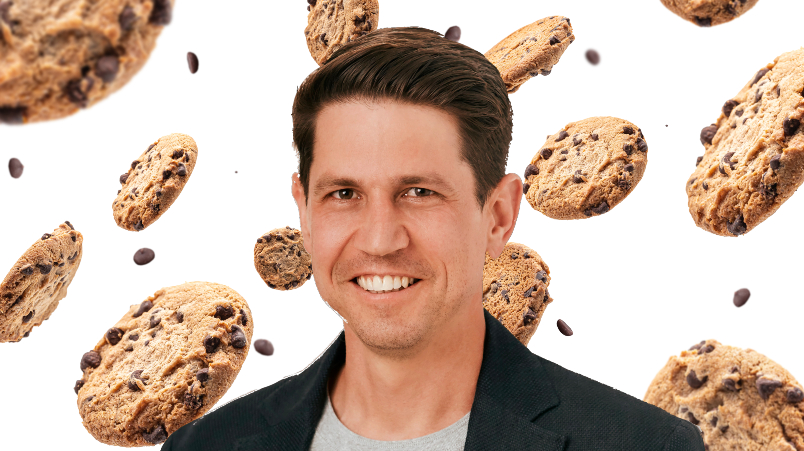
"Consent is no longer a blank cheque, and we need to take more care," Luxury Escapes' Willem Paling writes.
The cookie debate has many conflicting voices and self-interested agendas, so here’s a perspective for marketers from Luxury Escapes' Willem Paling, ex-IAG Customer and Growth chief and former Cartology Measurement and Off Network boss, on where the vexatious issue stands exactly today. Here's a pragmatic take for planning short, mid-term – and possibly longer. Get your head around this two-part series and you’ll be cookie-fit for another three to six months. The key takeout? This is not a traditional marketing or technical advertising solution nor is what advertisers, tech companies and publishers want to do. Marketers now must cast wider on their post-cookie strategic influence to build a somewhat unexciting grasp on policy and the nexus between consumer, privacy and competition regulators.
11.
Coca-Cola, for example, knows when it hits 25 degrees that there is an exponential increase in consumption of soft drinks. So it might want to set aside $300,000 to buy impressions in key locations when it hits that temperature over the next three months. Is that ROI on those spots worth 15-25 per cent more? Absolutely.

Programmatic out of home makes up less than 5 per cent of the Australian digital OOH market, but is tipped as the next major growth area by agencies. Supply side players are making a landgrab for scale and the demand-side platforms globally are moving rapidly to integrate 'pDOOH' into their stacks. But there are concerns that the "tech tax" and opacity that continue to plague broader programmatic may be repeated. Agencies are questioning "50 per cent-plus" price premiums attached for programmatic flexibility, and whether larger advertisers are better off steering clear. More mature markets suggest otherwise.
10.
This can only work, however, if there are purpose limitations that prevent the large players from collecting data in one environment and then using it in a completely different environment. That is not reasonable even with consent, and so should be outlawed.

Data sets that use digital identifiers and compile specific information about individual users would be covered by the Australian Privacy Principles and require much more consent and security, the federal government has flagged.
In a change that would have profound implications for the $13 billion digital advertising industry, the Federal Government is looking to define what counts as “personal information” in its overhaul of the nation’s privacy laws. Experts say the proposal in its most recent Discussion Paper, however, would include any digital identifier that is assigned to a specific user – even if the user isn’t explicitly named. That could cover most post-cookie ID initiatives currently being developed and even Facebook and Google’s audience matching platforms. Salinger Privacy's Anna Johnston, Bird & Bird partner Sophie Dawson, ADMA's Sarla Fernando, Luxury Escapes' Willem Paling and Guardian Australia's Dan Stinton weigh in on what brands, agencies and media should know.
9.
It is highly likely that companies do not seek this information directly from the individual because most individuals would refuse to provide it, regarding the request as intrusive and unnecessary for the transaction or service in question.

APP 3.6(b) says that personal information should be collected directly from the individual concerned, rather than from third parties or other sources, unless it is unreasonable or impracticable to do so.
A single clause in Australia’s existing privacy legislation could challenge the viability of the ‘data enrichment’ sector, which is used by major brands to improve data for advertising purposes. A new paper from UNSW’s Dr Katharine Kemp argues Australian Privacy Principle 3.6(b) is the “forgotten” privacy principle, which explicitly says brands, media owners and organisations “must collect personal information about an individual only from the individual unless it is unreasonable or impracticable to do so”. Third party data providers like Flybuys, Experian, Oracle Australia and Informatica – whose public statements are used in the paper – are examples of businesses providing the service. Major brands like Woolworths, David Jones, Telstra, Bunnings and Ticketek say they collect personal information from third party sources.
8.
Why the hell is no one else talking about this and what are the other brands doing? It makes me nervous... Why is it taking a chicken brand to kick off on this and lead the way on this?

“The great thing about it for us was trying to reach consumers in environments where third-party cookies are blocked as well, like Safari," Havas' Kevin Fernandes, left, said. Right: Baiada marketer Yash Gandhi.
Fed up with dozens of panel conversations waxing lyrical about 'the cookieless future', Yash Gandhi, CMO at Steggles and Lilydale owner Baiada Poultry, decided to put some money on the table and test ID5, one of the big post-cookie ad targeting solutions. The results were a double-digit boost on standard cookie advertising and 1,800 per cent lift in engagement in Apple's already cookieless Safari browser. But he thinks industry is far too coy about what is actually working, given what's at stake when the industry's tracking currency disappears.
7.
Some TV ads worked well for us, and some didn’t. We did geo-incrementality testing where we looked at an area that is comparable to another area from a consumer behavioural point of view and ran TV in one and not in the other. We saw a big uplift in new customer acquisition

"David Jones and Myer,” former The Iconic CMO Alexander Meyer (pictured) says, are "ailing for good reason: They can’t refresh quick enough."
Digital "pureplayers won the online battle, omni retailers with an online-first mindset will win the retail war", says the The Iconic’s just departed CMO Alexander Meyer, born in Communist East Germany before the Berlin Wall fell in 1989. Few have been as deeply involved as a marketing practitioner through the digital marketing boom of the past 20 years as Meyer. But the targeting tools digital marketers have been using are fast hitting walls – think the mass harvesting of online user intent signals and cookies. Data and tech are now just standard tools today – the biggest business differentiator, says Meyer, is a swing back to creativity. He has just landed in Canada with The Bay, the new digital-first retail play by The Hudson’s Bay Company, which also owns Saks Fifth Avenue. It's the most exciting retail tech platform opportunity in the world right now, he reckons. He also says marketing can "save the world" – but it needs a radical rewiring.
6.
A lot of these traditional growth hacking channels have been saturated by a lot of these firms… The ones that are trying to use a 2017 playbook to grow in 2022 are failing miserably.
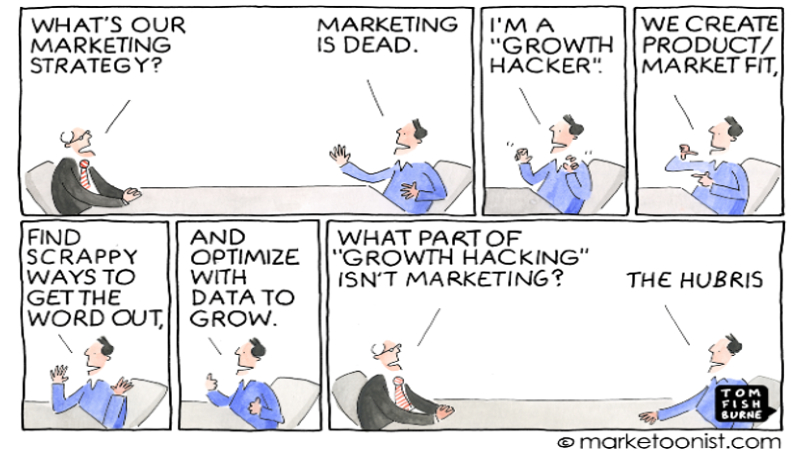
Many growth hacking methods are out of date and failing, marketing consultant John James says. Cartoon: Tom Fishburne | marketoonist.com
Growth hacking was once a favourite term of the Silicon Valley crowd instead of marketing, fuelling the meteoric rise of early tech pioneers like PayPal, Tesla and Amazon. But there’s a fascinating blurring going on, where once successful growth hacks are starting to falter – “failing miserably”, in the words of one-time growth hacker and services marketing advisor Jonathan James. Instead, tech companies – think Canva – are turning to out of home, television, and other traditional media. In most verticals, there’s increased competition, meaning start-ups are rediscovering the need to have a “brand”. Traditional marketing smarts and brand talent are increasingly sought-after, and what’s old is becoming new again.
5.
None of these businesses are household names. But these four businesses have a market cap that is greater than Nike, Coca-Cola, Adidas and GM combined. For the advertising industry, these new B2B categories and the businesses like them, that is where the growth is going to come from.
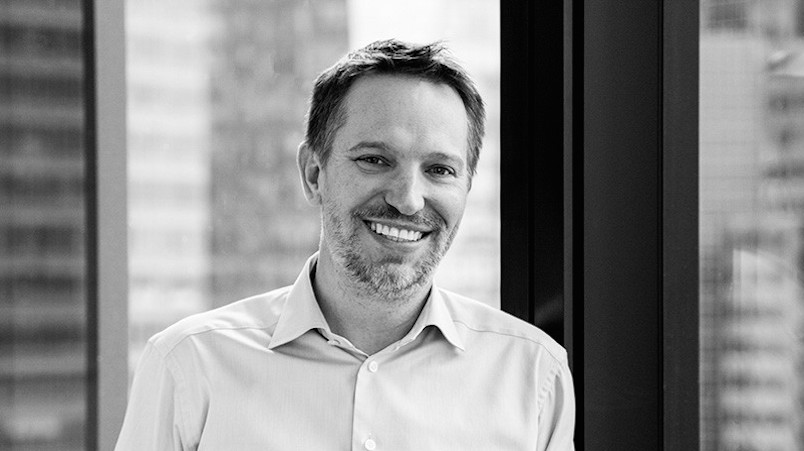
Ryan Roslansky: The smart people and the smart money are moving into B2B. The ad industry should probably read the runes.
The ad industry is missing the biggest opportunity in front of its nose. B2B brands are quickly outgrowing mature consumer brands, with the likes of ServiceNow way bigger than the likes of Ford and Ferrari combined. LinkedIn CEO Ryan Roslansky told Cannes agency types to start learning how to sell to businesses instead of households. In five years time creative directors will be begging to work on process automation, accounting software and fintech accounts, he suggested, and those currently uncool mega brands need agency smarts. “It’s where the money is going to be.”
4.
We’re planning the last click funeral. But I’d give it 12-24 months before that happens … We need a forcing function. Much like the pandemic was a clean sheet of paper [for content marketing], perhaps this economic environment is the clean sheet of paper for how we think about measuring business outcomes.
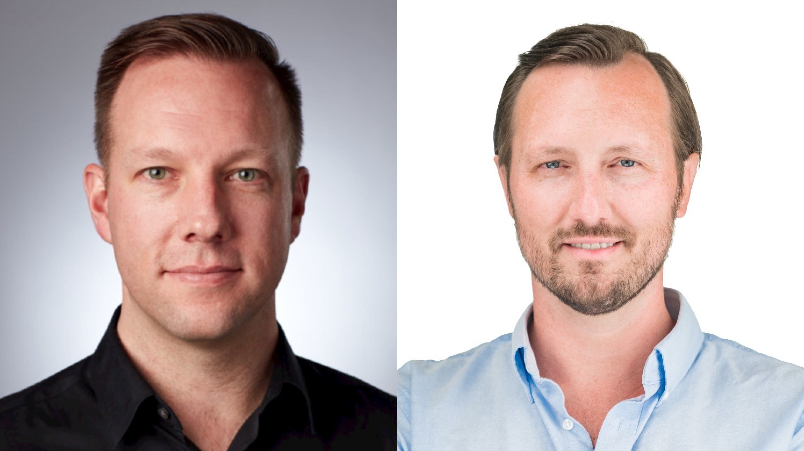
Lifting B2C's playbook, raiding its talent, planning a celebratory wake for last touch attribution and a total overhaul of account-based marketing: Salesforce global brand boss Colin Fleming (l) and Jim Habig, LinkedIn's Global VP, Marketing Solutions.
The circa $100m global tech event queen is back and smiling - after three years of covid-forced virtual experimentation, about 40,000 people flooded San Francisco last week, each paying US$2,000 to attend what is the world's biggest tech vendor event, the Salesforce-staged Dreamforce conference. Another 100,000 worldwide streamed in as global marketing, service, sales and customer pilgrims enthusiastically embraced tech evangelism by the high priests of B2B. Still,there are material changes underway - Salesforce is deliberately morphing into the Disneyland of tech, business branding and product with an armada of animated characters leading each of its products to build emotion and "distinctive assets", a radical departure from much of the historical, rational underpinnings of demand-generation tactics in B2B sales, marketing and events. Salesforce EVP Global Brand Marketing, Colin Fleming and former YouTube marketer and LinkedIn Global VP, Marketing Solutions Jim Habig joined up in San Francisco for this Mi3 doubleheader where like Fleming, Habig is also rewriting the B2B marketing rule book for more emotion and real people – not rational automations.Between them they're overhauling measurement, spurning "vanity metrics", reducing content by 30% and "preparing a funeral" for one of the biggest and lasting furphies in digital marketing – last-click and last-touch attribution. Finally.
3.
The risk is that agencies that churn and burn brands will still make the list because they hit those other metrics – three out of the four criteria are about spend with Google. There are surely more suitable metrics, if quality assurance is what you are aiming to achieve.
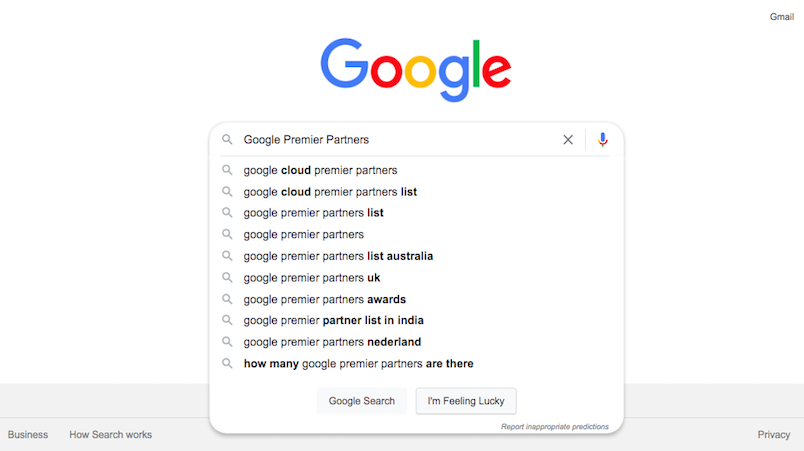
Feeling lucky? Search the Google Preferred directory and find the agencies it says are the top 3 per cent in Australia.
This story has been updated to include five further agencies: Google has published a list of 84 Australian agencies that have achieved 'Premier' status – the top three per cent in Australia, per Google, and a badge of quality assurance for brands that spend circa $3bn on search annually. iProspect and Reprise, two holdco-owned agencies that were notably absent in the first draft have been added to Google's list, along with independents Adcore Australia, First Digital and Indago Digital. But industry execs think the criteria used by the search giant risks unintended consequences.
2.
The advertising press story is effectively 'We're the champion identity-farming uber-trackers, just like Google and Meta'… The privacy policies give consumers the 'nothing to see here' version of data practices. It's a pretty stunning contrast.
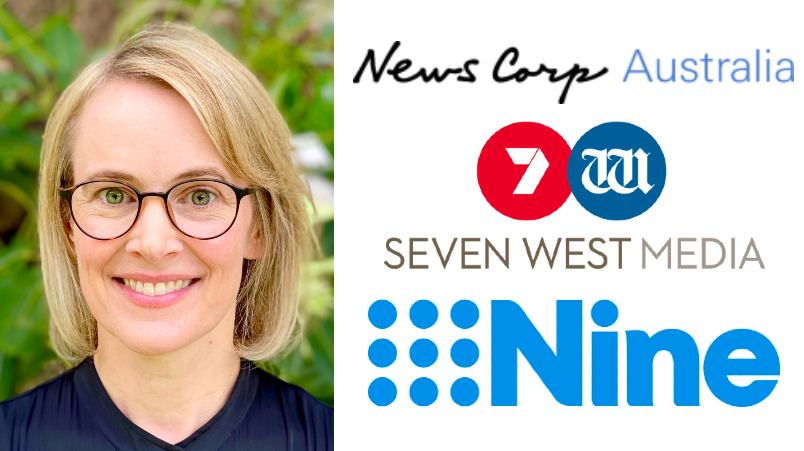
Dr Katharine Kemp presented her paper, How to Track Consumers Who Don’t Want to be Tracked, at the ACCC’s National Consumer Congress earlier this year.
1.
Oracle is an important part of the tracking and data industry. It has claimed to have amassed detailed dossiers on 5 billion people, and generates $42.4 billion in annual revenue
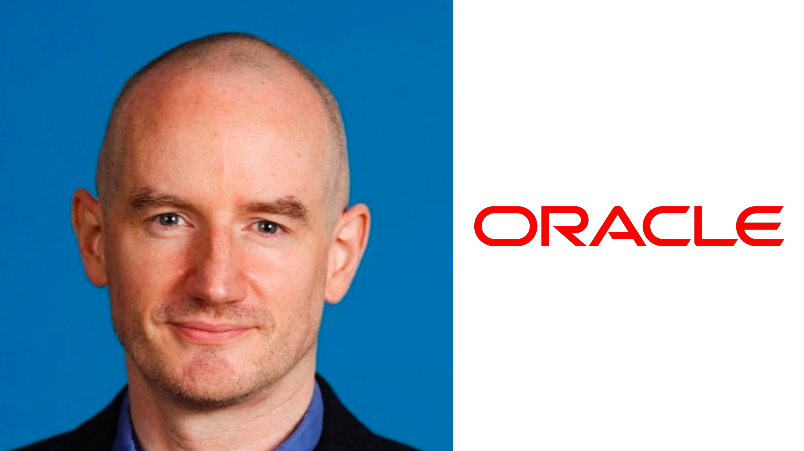
"We are taking this action to stop Oracle’s surveillance machine," Dr Johnny Ryan says.
Oracle is in the crosshairs of global privacy advocates, with a trio of powerful campaigners – including the Irish Council for Civil Liberties’ Dr Johnny Ryan – filing a class action lawsuit in California alleging violations of privacy on behalf of all internet users. Oracle has “hidden dossiers” on 5 billion people, the lawsuit says, and coordinates a global trade of data through its Data Marketplace.
